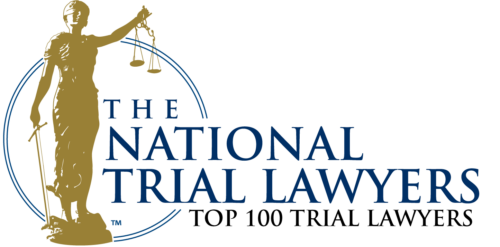In Pennsylvania’s “choice no-fault” system, all drivers must have $5,000 worth of coverage to pay for their own injuries regardless of fault. This pays your bills first. Then, if that runs out, there are at least five additional ways to get medical bills paid. First, your insurance might have additional first-party benefits to cover you. Second, if you meet the standards to use the other driver’s insurance, you can file a claim against their liability insurance or, third, potentially sue them in court. There may also be other insurance that covers your case. Lastly, the option we usually seek to avoid is that you can pay your bills out of pocket.
After suffering a harmful crash in Pennsylvania, seek guidance from our experienced Philadelphia car accident attorneys by calling The Reiff Law Firm at (215) 709-6940 for a free case review.
How to Get Your Medical Bills Paid Following a Crash in Pennsylvania
If you suffered a serious injury as a result of a car accident, $5,000 may not be a large enough amount of money to cover all of your issues resulting from the accident. Generally, car accident victims in Pennsylvania have two potential routes to obtain payment for their medical bills – dealing with insurance companies or filing a claim/lawsuit. After assessing your case, our car accident lawyers can determine which of the following options may be available to you:
Filing a Claim with Your Own Insurance Company
If you’re involved in a car accident in Pennsylvania, you may be able to acquire compensation for your medical bills by filing a claim with your own insurance company. In this scenario, you will utilize your Personal Injury Protection (PIP) coverage, which is a mandatory part of auto insurance in our state. Thankfully, when seeking compensation for medical bills through PIP, you do not need to prove that another party is to blame for your crash.
In order to file a PIP claim, you must quickly notify your insurance company about your accident and the injuries you sustained. When reporting your accident, you will need to provide your insurer with a detailed description of how your collision happened and the injuries it caused.
Unfortunately, PIP coverage is not always sufficient to cover the damages caused by an accident. In such cases, victims may explore other options for pursuing monetary damages.
Other Insurance
Sometimes other insurance coverage you have might also pay for medical care after a car crash, depending on the circumstances. For example, many people have long-term or short-term disability policies through their jobs that might pay for medical care for a long-term injury. If an auto accident happened as part of your job, your employer’s Workers’ Compensation coverage might also kick in to cover your medical bills, though this can complicate the damages you get in a lawsuit against the at-fault parties.
Paying Out of Pocket
If all else fails and there is nothing else to cover your case, you may be able to pay out of pocket for expenses. In some cases, you might be able to do this first, then get them reimbursed through one of the methods above. In any case, if you do pay out of pocket, your health insurance or state/federal programs like Medicare and Medicaid should still cover medical care as normal – but they might do so only if other insurance options have been exhausted first. In any case, our lawyers recommend avoiding this, as the at-fault drivers should be the ones paying for the injuries they caused you.
Health Insurance
Injured drivers often pay for their medical costs with a combination of auto insurance and health insurance. Your auto insurance policy will often cover your medical bills up to the policy limit. If you have unpaid excess costs, your health insurance may kick in and cover the rest.
While many injured drivers are fortunate to have both forms of insurance, many others are not. Many people do not have health insurance through their employer and cannot afford to buy it independently. In the event of an accident, they can only rely on auto insurance, which might not be enough.
Filing a Claim Against the At-Fault Party
You may also obtain payment for medical bills after a car accident by filing a claim against the at-fault party and their insurance company. Typically, this type of claim is filed when a victim’s injuries are severe, and their medical expenses surpass the limits of PIP coverage.
In order to recover compensation from another party after your car accident, you must be able to prove that your crash happened as a result of their negligent behavior. There are several types of evidence that may be used to establish this causal link. However, such evidence may become hard to collect and preserve as time goes on. The sooner you get in touch with our legal team, the more efficiently we can gather the information required to recover damages from another party. We can help build your case and fight for the full range of financial compensation you are owed.
A Lawsuit
If you meet the standards to sue in your case or you have full tort insurance, then you can file a lawsuit directly against the driver who hurt you. This means they can use their insurance to cover what they can, but additional damages can be ordered directly against the defendant. If they do not have much money, it might be hard to collect, however.
In cases where the driver was a commercial driver engaged in their job at the time of the crash, you can often sue their employer for your injuries in place of the driver. Our Pennsylvania car accident lawyers often use this tactic in truck accident and bus accident cases to help our clients get additional damages beyond what the individual driver can afford.
How Pennsylvania’s Full Tort and Limited Tort Insurance Pays for Medical Bills in a Car Crash
The first place that you can turn to for covering your medical bills in a car crash is your own insurance. In a traditional “no-fault” insurance system, each driver has coverage for their own medical bills (and the medical bills of anyone else in their car) on their policy, and they are not allowed to sue. In Pennsylvania, every driver has to have at least $5,000 worth of medical coverage for themselves and their passengers on their insurance, but their right to sue for more damages depends on their insurance.
With full tort coverage, you are allowed to sue for any crash. With limited tort, you can only sue if your injuries are serious enough or if you meet other standards under 75 Pa.C.S. § 1705(d)(1); then, you can sue as if you had full tort insurance. Limited tort insurance is cheaper but usually means you have to rely more on your own insurance, and you can only sue for additional medical bills, lost earnings, and pain and suffering if you meet the exceptions.
What if You Have Insurance from Another State (Not Pennsylvania)?
If you were hurt in a car crash in Pennsylvania, but you have insurance from your home state, then your case might be a bit confusing. Depending on your home state’s insurance rules, you may have the same or similar kinds of restrictions on your insurance that require you to use your insurance first, then only allow you to sue for an injury after using your insurance. In this case, you might face the same limits on suing here in Pennsylvania. However, if your insurance essentially counts as a full tort policy under Pennsylvania law, you may be permitted to sue directly for your injuries.
In most insurance policies, there will be special provisions to cover you as required under the laws of another state if you travel into another state and get into a crash there. Even so, it is important to work with a local attorney in Pennsylvania to examine the terms of your policy, check what coverages you have, and help you file a lawsuit in Pennsylvania using our laws and procedures to get you the compensation you need.
Time Limit for Filing a Car Accident Case Against Another Driver in Pennsylvania
Time limits for filing certain types of cases are set forth by specific statutes of limitations. In Pennsylvania, the time window for filing a car accident lawsuit is established by 42 Pa.C.S. § 5524.
Generally, you will have two years from the date of your accident to file your claim against another party. If you wait too long to file, then you may miss out on your opportunity to recover important compensation.
Furthermore, in addition to filing your case on time, there are several other conditions that you must satisfy. For instance, you must file in the correct jurisdiction, pay filing fees, attach supporting documents, serve defendants, and ensure that you are filing a complete claim. Fortunately, the team at our law firm can help ensure you meet these requirements when bringing your lawsuit against another driver.
Evidence Used to Recover Medical Bills in Pennsylvania Car Accident Lawsuits
In order to recover medical bills in a car accident lawsuit, you must be able to prove that your crash happened because of the defendant’s negligence. Furthermore, you must demonstrate that your accident was the actual cause of your injuries. The following are examples of evidence that may be used to establish these connections in your case:
Eyewitness Testimony
Eyewitnesses who saw the accident occur can provide crucial evidence to establish fault. Their accounts of the events leading up to the collision and the actions of the drivers involved can carry significant weight in court.
Accident Reconstruction Analysis
In complex cases, accident reconstruction experts may be employed. They use physical evidence, such as skid marks and vehicle damage, to recreate the sequence of events and determine fault based on scientific analysis.
Medical Records
You need to obtain official documentation of your car accident injuries in order to establish the damages caused by your crash. Accordingly, you should see a doctor as soon as possible after your collision.
If you wait for injuries to heal on their own, then you may seriously complicate the settlement process. Furthermore, the defendant’s insurer may assert that a delay in medical treatment means that you were not badly injured.
Photographic Evidence
Photographs taken at the scene of the accident, as well as of injuries and property damage, can vividly illustrate the impact of the crash and serve as compelling evidence of the damages caused.
Expert Medical Testimony
Medical experts can provide professional opinions about the injuries sustained, their severity, and the long-term effects on the victim’s health and well-being. Their testimony can help the jury understand the medical aspects of the case.
Personal Journals or Diaries
If the injured party kept a journal documenting their recovery, pain, and limitations post-accident, these entries can be used as evidence to demonstrate the impact of the accident on their daily life.
Call Our Car Accident Attorneys Today for Help with Your Case in Pennsylvania
Get assistance from our experienced Allentown car accident lawyers by calling The Reiff Law Firm at (215) 709-6940.
Related Posts
- What Caused the Fatal Verrückt Water Slide Accident?
- How to Sue for Injuries Caused by Tire Explosions in Pennsylvania
- Despite GM Recall & Ignition Switch Repairs Cars Are Still Stalling
- The Impacts of Non-Disclosure Agreements in Product Liability Settlements
- Is Pennsylvania a No-Fault State for Car Crashes?















